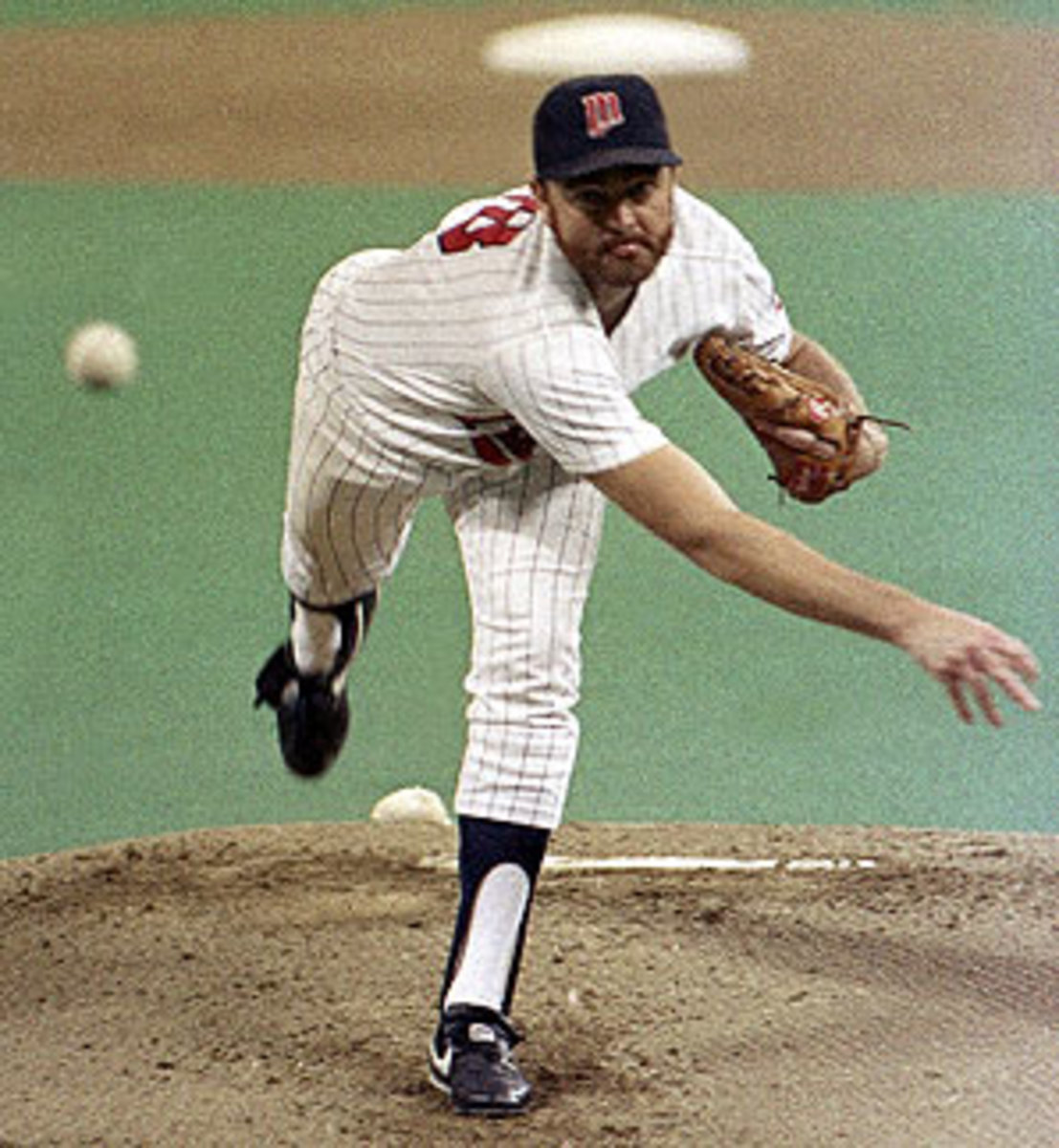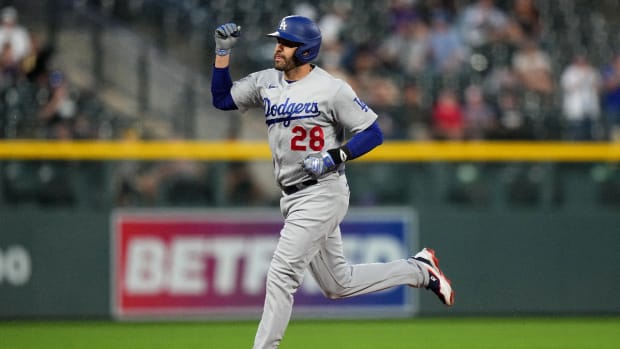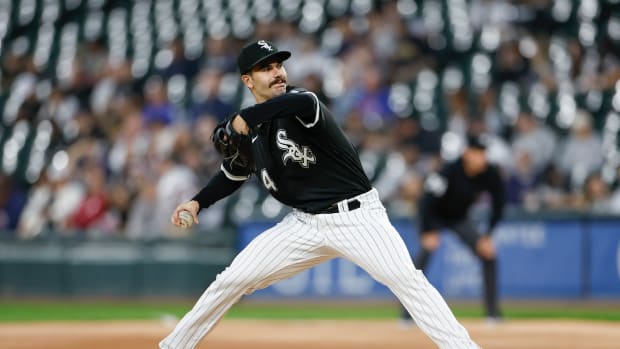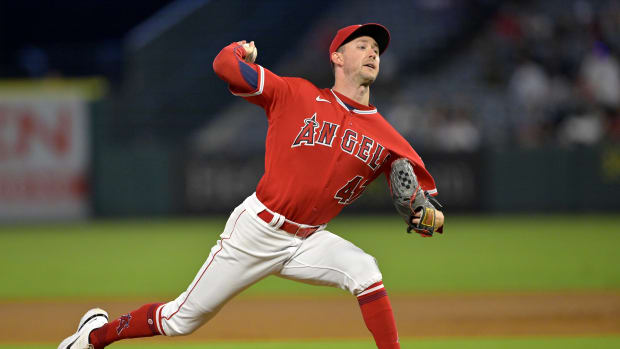How King Felix may help Bert Blyleven make the Hall of Fame
"I feel like the baseball experts in the last couple of years are starting to come around and look at more than just wins and losses when they judge a pitcher,'' Blyleven says. "There's a lot more to a win than just what the pitcher does. Felix Hernandez, like Zack Greinke the year before, pitched well and didn't always have a win to show for it.''
Now, with ballots for the 500-plus voting members of the Baseball Writers Association of America due on Dec. 31, Blyleven hopes that the trend of de-emphasizing pitchers' wins in the Cy Young races in the last two years will carry over into the Hall of Fame voting and allow him to be elected to Cooperstown when the results are announced Jan. 5.
In 2009, the baseball writers gave the National League Cy Young Award to the Giants' Tim Lincecum, who had 15 wins, and the AL award to the Royals' Greinke, who had 16, three fewer than Hernandez. Then last month, the AL Cy Young went to Hernandez, who was hindered by a lack of run support from an offense that was shut out or held to one run in 10 of Hernandez's starts while scoring 513 runs for the season, by far the fewest in either league.
Voters weren't bothered by Hernandez's record and the fact that he was 8-10 as late as Aug. 15. Instead, they were bowled over by such accomplishments as his leading the AL in innings (249 2/3), ERA (2.27) and opponents' average (.212), while finishing second in strikeouts (232) -- all stats that pitchers can control more easily than wins.
Hernandez beat out the Rays' David Price, who had 19 wins, and the Yankees' CC Sabathia, who had 21. Both pitcher's teams made the postseason.
"CC Sabathia had 21 wins, but the voters looked at the support he had from that lineup,'' Blyleven says.
In many ways, the numerology of Blyleven's career is similar to what happened with Hernandez in 2010. Blyleven compiled elite numbers, but voters have kept him from the Hall because they are leery that his 287 wins aren't as impressive as they might appear at first glance.
Instead, voters have focused on the fact that Blyleven's career record (287-250) is closer to .500 than any other starting pitcher in the Hall. They remember that he didn't join the 300-win club that has ensured each of its members a ticket to Cooperstown, that he had only one 20-win season and that he was saddled with six seasons of at least 15 losses.
But Blyleven is fifth all time with 3,701 strikeouts, ninth in shutouts with 60 and 10th in starts with 685. He also threw 242 complete games and nearly 5,000 innings in 22 seasons, mainly for poor teams in Minnesota, Texas and Cleveland.
Blyleven, whose curveball was considered the best of his era, came up with the Twins at age 19 in 1970. He led the AL in shutouts three times and had 16 seasons of 200-plus innings, including six consecutive seasons of at least 275 innings. He missed two seasons with arm injuries, but he went 5-1 with a 2.47 ERA in two postseasons, winning the World Series with the 1979 Pittsburgh Pirates and 1987 Twins.
As for his wins total, Blyleven lost 99 times in games that he had a quality start, defined as pitching at least six innings and giving up three earned runs or less, and in another 77 such outings he got a no-decision.
These days, voters say they are becoming less concerned with wins and focused more on secondary and new-age statistics that measure how well a pitcher does individually.
"Thank goodness for the rise of our collective conscious,'' says Lynn Henning, a voter from The Detroit News. "Blyleven is the most grotesque oversight of our electorate. He pitched for a lot of teams where he had to do it all himself. I just don't understand why he's not in the Hall of Fame.''
"The best arguments for sabermetrics are made in Blyleven's behalf,'' says the Toronto Star's Dave Perkins, who has already changed his mind about the candidacies of Barry Larkin and Tim Raines and could change his position on Blyleven, too. "The rise of interpretive stats has changed our opinions of players -- and that's not easy to do. It's turned our thought process inside out.''
Ray Ratto, of Comcast Sports Bay Area in San Francisco, used some of those advanced statistics to become a Blyleven believer. Ratto saw that Blyleven's adjusted ERA, which takes into account such things as ballpark dimensions and says an average pitcher has a score of 100, was 118. In other words, Blyleven's ERA was 18 percent better than the league average for the time that he played.
"When you think about that over 5,000 innings, that's a big deal,'' says Jay Jaffe of Baseball Prospectus.
Mike Dodd of USA Today has never voted for Blyleven, but he agrees that philosophies are changing. And, he said he would consider checking the box by Blyleven's name.
"Felix Hernandez might help him. In general, the old standards are more flexible," says Dodd. "A pitcher with 300 career wins might still be automatic, but 300 wins is not the be-all or end-all.''
That's how voter Mark Gonzales of the Chicago Tribune sees it, although it took him a while to come to that conclusion. Gonzales, who voted for Hernandez for the AL Cy Young, went 11 seasons without voting for Blyleven, but now he does.
"A pitcher can only control what he does on the mound,'' Gonzales says. "You can't penalize a pitcher for the lack of run support. With Felix, that was obvious. With Blyleven, his lack of 20-win seasons swayed me against him.''
Blyleven's 60 shutouts got Gonzales: "For me, that's dominance. He was a pitcher with little or no margin for error.''
And whether a pitcher is on a winning team shouldn't determine if he makes the Hall, Ratto says. He started voting for Blyleven a few years ago and said that "not having a special number of wins should not be a disqualification. It is about individual excellence, not a Hall of players on winning teams. More and more, we are realizing that wins are a function of the team you are playing for.''
Tim Brown of Yahoo! Sports voted for Hernandez for the Cy Young, but isn't sure if he'll vote for Blyleven: "The argument [that he was] pitching for poor teams is somewhat thin. Steve Carlton and Tom Seaver pitched for awful teams and found a way to win.''
Blyleven has two more years to make Cooperstown on the writers' ballot, and if he doesn't make it, his case goes to the Veterans Committee. A candidate needs 75 percent of the vote, and last season, Blyleven missed by five votes, getting 74.2 percent of the 539 ballots. The good news for Blyleven is that of the 21 previous players to receive at least 70 percent, all eventually got in.
Blyleven, now a Twins TV analyst, is cautious. "I am not taking anything for granted," he says. "I only hope that they have to make the call and tell me that I am in.''



































